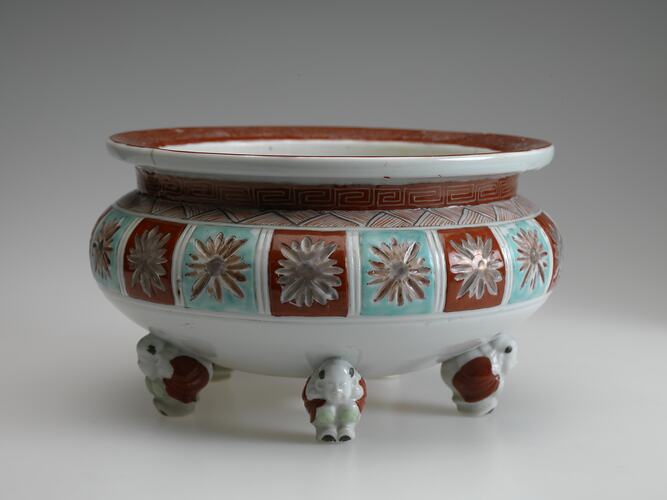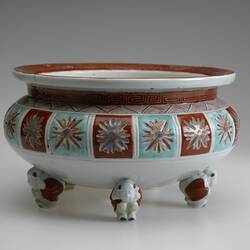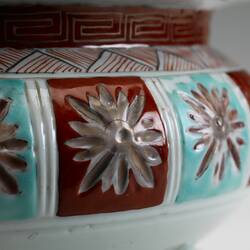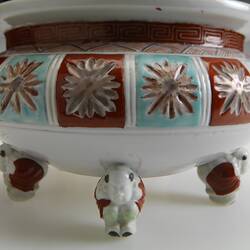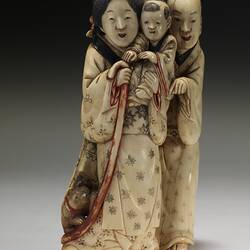Summary
Earthenware jardiniere in red and turquoise glaze supported on five feet in the form of crouching men, manufactured in Japan during the early Meiji Period (1868-1880).
Deriving from the French word for 'gardener', a jardiniere is a type of pot plant that was often highly decorated. They were produced in a range of materials, common being of ceramic or bronze, and during the late nineteenth and early decades of the twentieth century were a popular inclusion to interior furnishings.
This particular Japanese jardiniere, produced in an imari style, is in the form of a flattened bulbous bowl, resting upon the shoulders of five crouching Japanese figures. A hole in the centre of the bowl would allow for excess water to drain into a platter.
Physical Description
A bulbous bowl on five feet modelled as human figures.
More Information
-
Collection Names
-
Collecting Areas
-
Acquisition Information
Cultural Gifts Donation from Dr Will Twycross, 23 Jan 2009
-
Acknowledgement
Donated through the Australian Government's Cultural Gifts Program
-
Place & Date Made
-
Place & Date Exhibited
Royal Exhibition Building (REB), Nicholson Street, Carlton, Greater Melbourne, Victoria, Australia, 1880-1881
-
Collector
Mr John Twycross, Elsternwick, Greater Melbourne, Victoria, Australia, 1880
-
Classification
Royal exhibition building, International exhibitions, Exhibition heritage
-
Category
-
Discipline
-
Type of item
-
Dimensions
258 mm (Width), 140 mm (Height)
-
Maximum dimensions
46 mm (Width), 48 mm (Height)
Measurement From Conservation.
-
Keywords
Decorative Arts, Exhibitions: Melbourne International, 1880-1881, Japanese Art, Royal Exhibition Building
